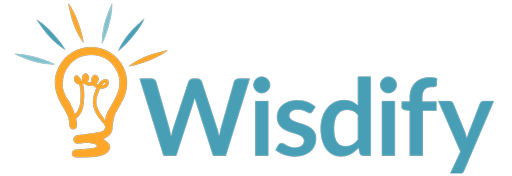Job fairs are a great opportunity for you to meet many potential employers and learn about their organizations. But remember that those employers will also be meeting many job seekers and will be evaluating your fit as a potential candidate – so you need to make a good impression.
How to master the job fair
If you are like most people, attending a job fair can feel overwhelming, with crowds of people and many recruiters to impress. However, you can approach the fair with confidence and make the experience valuable by following some best practices before, during, and after the fair.
Before the fair
Taking some time to prepare for the fair before going will help you feel more comfortable and help you make a better impression. Preparing for a job fair is similar to preparing for a job interview because you will be conducting many mini interviews (1-2 minutes) with the recruiters. Prior to the fair, you should:
- Review your resume: Make sure you have an up-to-date and targeted resume (see “How to format and structure your resume”) that’s ready to be given to employers. Make plenty of copies of your resume to bring with you – at least two per company so you can give them to representatives you speak to and leave a copy at each booth.
- Research the attending companies: Obtain a list of the companies attending the fair so you can identify which ones you want to speak with and then research them. Learn about what each company does and look up what positions are available. This will help you prepare questions to ask the recruiters and respond to their questions about what you know about the company. Being knowledgeable about the company will show your interest and make a good impression on the recruiter.
- Practice your quick pitch: The recruiters will want you to introduce yourself, so be ready with a 30-90 second “elevator pitch” of yourself. Highlight your key strengths and qualifications, as well as your interest in the company. Don’t try to memorize it word for word – or it will sound like you are regurgitating it – and tailor what you emphasize with each recruiter to the needs of their company. You will feel more confident approaching the recruiters if you have thought out how you will introduce and promote yourself.
- Prepare to answer and ask questions: Prepare to answer questions like you would for a job interview. The mini interviews you will have at the fair will be much shorter than a job interview, but still practice some common interview questions (see “5 most common interview questions and how to answer them”) so that you will be comfortable answering questions about yourself. Also, be ready to ask the recruiters meaningful questions that show your interest and preparation.
- Pre-register: If you can pre-register for the fair, do so. This will likely save you time filling out paperwork at the fair. It will also make the recruiters aware of you before the fair begins.
During the fair
Just showing up to the fair, picking up some materials, and dropping off your resume at each booth isn’t going to do much for your career. There will be many potential employers and other people to connect with there, so interact with them and be professional and friendly.
- Dress professionally: This is your chance to make a great first impression on a potential employer, so be neat, polished, and in business attire. Dress like you would for a job interview, but take into consideration that you will be on your feet for hours in a likely crowded room (see “What to wear to a job interview”). If you are unsure about what would be appropriate attire for a particular event remember to err on the side of caution – it is better to be overdressed than underdressed.
- Arrive early: Arrive early to make sure you have time to speak with everyone you want to – and to speak with them before they are exhausted at the end of the day.
- Be strategic: Make sure you have time to speak with the companies you are most interested in by going to their booths first. If there is a map available, you can use it to chart out your route to those companies. If you are interested in a company that doesn’t have a representative for the position you want to apply for, still speak with the representative that is there. They may be able to put you in contact with the right hiring manager and tell you more about the company.
- Be careful of long lines: Part of being strategic is knowing when it is worth it to stand in a line. Hot companies will have hoards of potential candidates waiting to meet the recruiters. If you are not careful, you may spend your whole time only talking to 1-2 companies. Only stand in line for your dream company. Otherwise, spend your time meeting with other companies. You may be surprised to discover a company you previously did not know about about. Plus, there are many other ways to meet recruiters. The job fair is not your one and only shot at glory.
- Job fairs can add valuable contacts to your network: Be polite, positive, and professional with everyone at the fair. In addition to the recruiters, introduce yourself to other fair attendees. They may be able to share leads, advice, and job search tips or help in some other way in the future.
- Be enthusiastic and engaged: You won’t get very much out of the fair if you are too shy to approach the recruiters and just drop off your resume at their booths. This is an opportunity to stand out and show potential employers that you have strong social and communication skills. Be confident and friendly. Introduce yourself, shake hands, smile, keep eye contact, and show genuine interest.
- Make your limited time with each recruiter count: Remember that the recruiters want to speak with as many potential candidates as possible, so you won’t have very much time with them. Get the most out of your conversation by giving your “elevator pitch,” asking meaningful questions that show you have done your homework, communicating your interest in the company, and sharing a copy of your resume. Thank them for their time and don’t try to monopolize it.
- Prepare for next steps: Before ending each conversation, ask the recruiter about next steps and get their business card. It is important to have their name and contact information so that you can follow up with them after the fair. As you leave each interview, jot down any important details or follow-up items – otherwise you will quickly lose track of this information after speaking to many different people throughout the day.
- Take advantage of any other resources: Some job fairs also have career counseling, resume review, and workshops or seminars. Keep an eye out for these activities and participate if you have time and think they would be valuable.
After the fair
Make a great second impression with the recruiter through appropriate follow-up.
- Record and review notes: Once the fair is over, take time to review and expand upon the notes you jotted down at the fair. While the experience is still fresh, record what you discussed with each representative and what you learned about different companies, positions, and industry trends.
- Send a thank you note: Email each representative you spoke with to thank them for their time, reiterate your interest, and send any follow-up information. Use your notes to personalize each message to the specific person you are sending it to. Send these messages within 24 hours of the fair (see “How to write a thank you email”) .
- Take care of any action items: Conduct any follow-up procedures the recruiters shared with you, such as applying for the position and asking for an onsite interview. You did not apply for the position by simply handing the recruiter your resume, so be sure to officially apply. Use what you learned from the job fair to enhance your application and reference the conversation you had with the recruiter. This will remind the recruiter of the awesome discussion they had with you and make you stand out from candidates they haven’t met in person.



